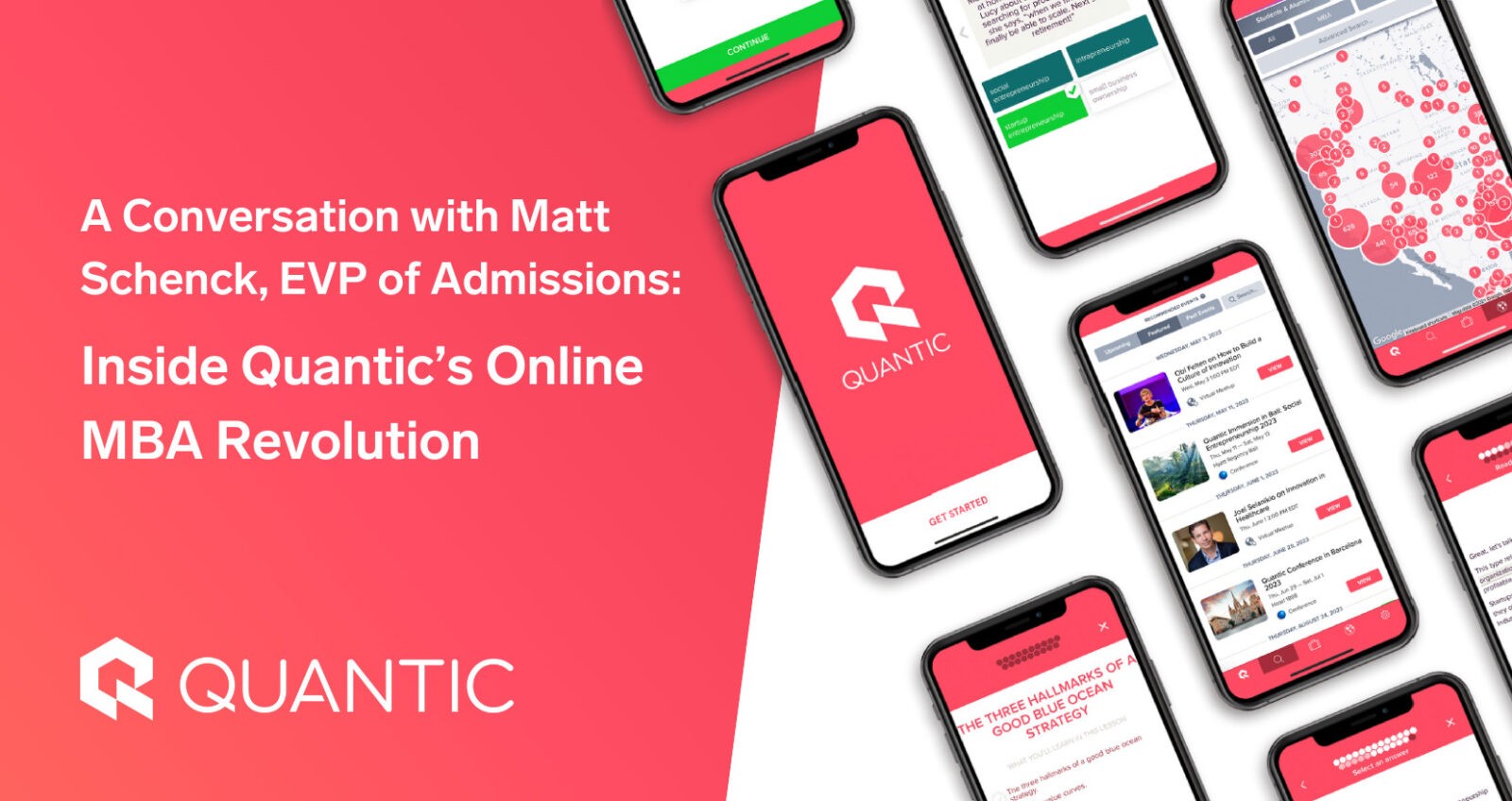EDUCATION
Meet our Newest Content Developer
John Riehl, one of Quantic’s newest content creators, is a former Air Force officer and current sailing instructor who knows a thing or two about computers. He’s writing a new computer science curriculum for Quantic, scheduled for release in 2018.
In this post, we catch up with John to learn what he’s working on and why he decided to join Quantic. Find out why he believes developers should go back to basics and what distinguishes the Quantic computer science curriculum from others on the market.
1. What’s your name, and where are you based?
John Riehl, and I’m based in Port Charlotte, Florida. It’s about 90 miles south of Tampa, on the Gulf Coast.
2. How long have you been writing for Quantic?
I started in August of 2017. I’m coming up on four months, so I’m still a newbie!
3. What’s your professional and educational background?
I graduated from Rensselaer Polytechnic Institute with a BS in Computer Engineering in 1989. I went to school on an ROTC scholarship, so I went on active duty in the Air Force after graduation. I stayed in 26 years, working in a variety of jobs closely related to computer technology—but nothing actually hands-on in terms of building or programming computers. During my time in the Air Force I picked up a Master’s in Computer Engineering along with Master’s Degrees in Air and Space Studies and National Resource Management.
4. How and why did you start writing for Quantic?
After I retired from the Air Force I wanted to get back to my technical roots in computer science. I came across Quantic, and it seemed like the perfect fit—share my knowledge and with the next generation of IT professionals while working from home on a flexible schedule. I appreciated Quantic’s innovative approach to education and was (and am) excited to play a small part in equipping the workforce of tomorrow with the skills they’ll need to succeed.
5. What are some of the subjects that you’ve written about in Quantic?
I’m working on a new curriculum for Quantic—Computer Science. What’s interesting about the course is that we’re striking what I think is a great balance between theoretical underpinnings and practical application. There are a lot of online courses for computer programming, but most of them focus just on the practical aspects—how to arrange instructions in a particular programming language to get a program to run. When it comes time for the learner to expand in a new direction or handle a novel situation they’re not as well-equipped as they would be without some fundamentals under their belt. On the other end of the spectrum is a typical four-year computer science program, which builds an extensive theoretical foundation at the expense of time (and money) getting the student to market, as it were.
6. Why do you think it’s important for students to understand computer science?
It’s not an overstatement to say that IT has fundamentally changed the world we live in. Given its impact, it’s important for those involved with building IT capabilities to get things right. A programmer without the right fundamentals is like a chef who doesn’t know what his or her ingredients taste like. Both can follow a recipe and put something together, but the result might not be very good. In the case of computer programs, it could be very bad indeed. Here’s a story about how not knowing the fundamentals created an unintended result. Imagine if that counter had been for something related to scheduled maintenance on a nuclear reactor.
7. What’s the hardest concept you’ve had to communicate (so far), and what was it like to try and distill it for the Quantic platform?
In general, the toughest part for me has been figuring out what the right level of detail is for a concept. For example, when you talk about digital videos you can range from “a video is a series of still images” to “here are the technical details of each of the over 100 different video compression formats in use today.” Finding what the learner needs to know, narrowing the scope down to the most important elements, and presenting it in a way that doesn’t make it a rote memorization exercise is always a challenge.
8. What do you admire about Quantic learners?
It seems to me that Quantic learners are self-starters who are willing to break with convention to improve their knowledge and marketability. They could “play it safe” by getting the standard college degree. Instead, they see an opportunity to be part of a new approach. Those kinds of people will take that same spirit of innovation and entrepreneurship with them into the marketplace, making things better for all of us.
9. What do you do to keep your learners in mind?
I must confess that I’m still working on this. Too often I’ll assume that a concept is obvious—after all, it’s obvious to me! I rely extensively on the Quantic review process to identify when I’ve leapt too far. I do my best to keep the lessons interesting. Having taken many online courses myself, I’m well aware that it’s very easy to get distracted with email, Facebook, etc. if the material is dry.
10. Anything else you’d like to mention?
I can’t speak for other content developers, but one great side benefit for writing educational content is the learning I do along the way. The process of articulating concepts that I have in my mind forces me to think through them in greater detail than I did when initially learning them. There have been a few times when things I thought I knew turned out to be based on bad assumptions and mental short-cuts that I shouldn’t have been taking. Bottom line—the work is fun and fulfilling from a personal perspective, and rewarding from the perspective of doing something that will have greater benefits down the road.



